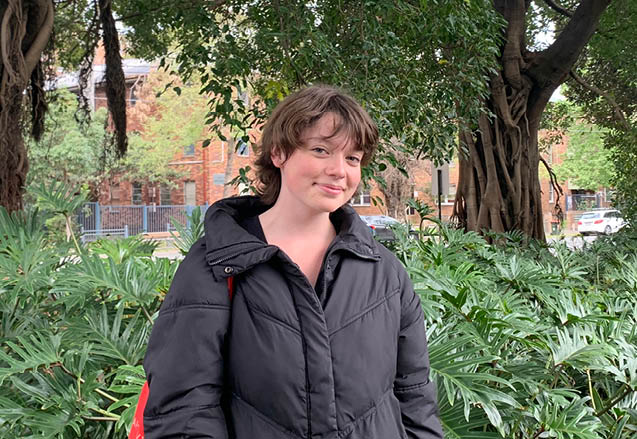Year 11 was already going badly enough for Matilda.
The Covid-19 pandemic means that the Sydney public school student feels like she’s lost about a term of her last full year of school, thanks to remote learning and teachers with health risks being unable to come to school.
Now she’s facing the very real prospect that her dream of studying an Arts degree at university will saddle her with more than double the amount of debt than it would if she were just three years older.
This huge increase in university fees is part of sweeping reforms to higher education, which experts say will disproportionately affect women.
Under the changes, some subjects will have their fees reduced, but others — such as history and economics — will see an increase of a staggering 113 per cent. Two thirds of those studying the humanities and culture courses affected by the fee hikes are women.

Matilda is interested in politics and history, and plans to do an Arts degree before possibly completing further studies in education. Her interest in the humanities is evident in her choice of HSC subjects: English, drama, legal studies, modern history, economics, and society and culture.
“I think it gives a good base so you can see what you’re interested in doing later,” she says of the Arts degree.
The government’s “Job-ready Graduates Package” was announced by federal education minister Dan Tehan in June, and submissions from interested parties are being heard now before the legislation reaches parliament next month.
The package aims to get more students into vocational degrees such as engineering, teaching and nursing. The government plans to cover more of the cost of subjects in those courses, making them cheaper for students, as well as adding 39,000 university places in the next few years.
But the flipside is that other subjects will become more expensive. Instead of paying $20,400 for a three-year humanities degree, students could end up with a debt of up to $43,500. Students in law, management, communications and social sciences will also see steep rises in subject costs. Women will bear the brunt of these costs, say experts.
The government’s package aims to get more students into vocational degrees
“Ultimately what this bill will do is increase the cost of education for women, more so for women compared to men,” says associate professor and deputy director of the Bankwest Curtin Economics Centre, Rebecca Cassells, who crunched the numbers on the gendered implications of the reforms.
The huge numbers of women studying humanities courses means that, in total, female students will be paying an extra $490 million a year towards their education, compared with $339 million paid by men, if current enrolment patterns stay the same.
Of course, some women will benefit — if they choose to study nursing, for example, that degree will now cost them less. But a lot of other women will be saddled with extra debt.
And this debt will be a bigger problem for women.
“We know that women don’t have the same types of labour market outcomes as men,” Cassells says. “Even in their first year out of university, men tend to command higher graduate salaries than women, and that’s across every single discipline.”
In total, female students will pay more for their degrees than men
It’s an issue that’s concerning those in the education sector, with the University of Sydney noting that the fee increases could influence women’s choices around family and career.
However, Tehan told PRIMER that the package will create more university places, which benefits women.
He also said: “The bill lowers the cost of education in current female-dominated careers like teaching and nursing. It also lowers the cost of STEM subjects, which will help attract more women (and men) into these fields, particularly given the high demand for STEM skills.”
The government’s plan assumes that many students who would have previously enrolled in Arts and law degrees will choose a different degree because of the higher cost.
But according to Cassells, research shows that most domestic students aren’t heavily influenced by the cost of a degree when choosing what to study (particularly as payment is deferred). She argues that incentivising people to study in areas where Australia will see skills shortages sounds sensible “on the surface” but that the government has chosen to pull the wrong policy lever.
The plan assumes students will be influenced by cost when choosing their degree subject
If we want to encourage more women to work in nursing and allied health, the government should work to improve employment conditions, rather than the price of degrees, she says.
“If you don’t actually have the employment conditions…regardless of whether it costs them $10,000 or $40,000 for a three-year degree, once they enter that occupation [women are] not going to stay because they’re going to feel like they’re not valued, they don’t have the working conditions and they don’t have the pay that they’re looking for,” she says.
And even if the policy did achieve its goal of diverting people away from the humanities, that would be problematic, argues the Australian Academy of the Humanities. “Because we know an education in the humanities produces essential skills and knowledge for society and the economy, no-one wants to see the humanities only become an area for those who can afford it,” says Academy President, Professor Joy Damousi, says.
Besides, The Academy argues that graduate outcomes and census data show that humanities graduates are more likely to be employed, full-time, than science or maths graduates. Plus, humanities graduates are trained in important skills, like creativity, problem-solving, and leadership, that companies say they need.

Grace Stals, a fourth-year law student at the University of Technology Sydney, is the first in her family to attend university, only reaching that goal after dropping out of high school at 16 and doing a TAFE diploma.
She didn’t give much thought to the price of her degree when she enrolled, but it’s influencing her career choices now.
“A lot of people from a low SES background have this view that going to university is going to pull you out of poverty, and a lot of people don’t think about the implications of that until you start to see your HECS bills rolling in,” she says.
“When I started to realise the debt that I was in, it threw me away from certain lower-paying careers like in community law or social services, because I’m aware those jobs don’t pay as well as commercial law, for example.”
Matilda says the policy won’t change her mind about her Arts degree. For one, it’s too late for her to choose different HSC subjects like maths that might be prerequisites for another course. But, she adds, “I wouldn’t make a different decision, as those are my interests”.
“I think it’s really unfair, it adds that extra debt to us.”













1 Comment